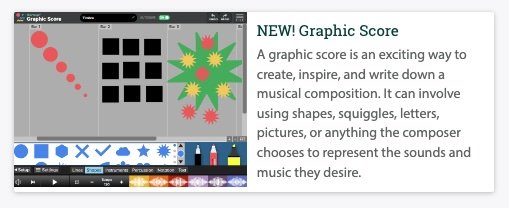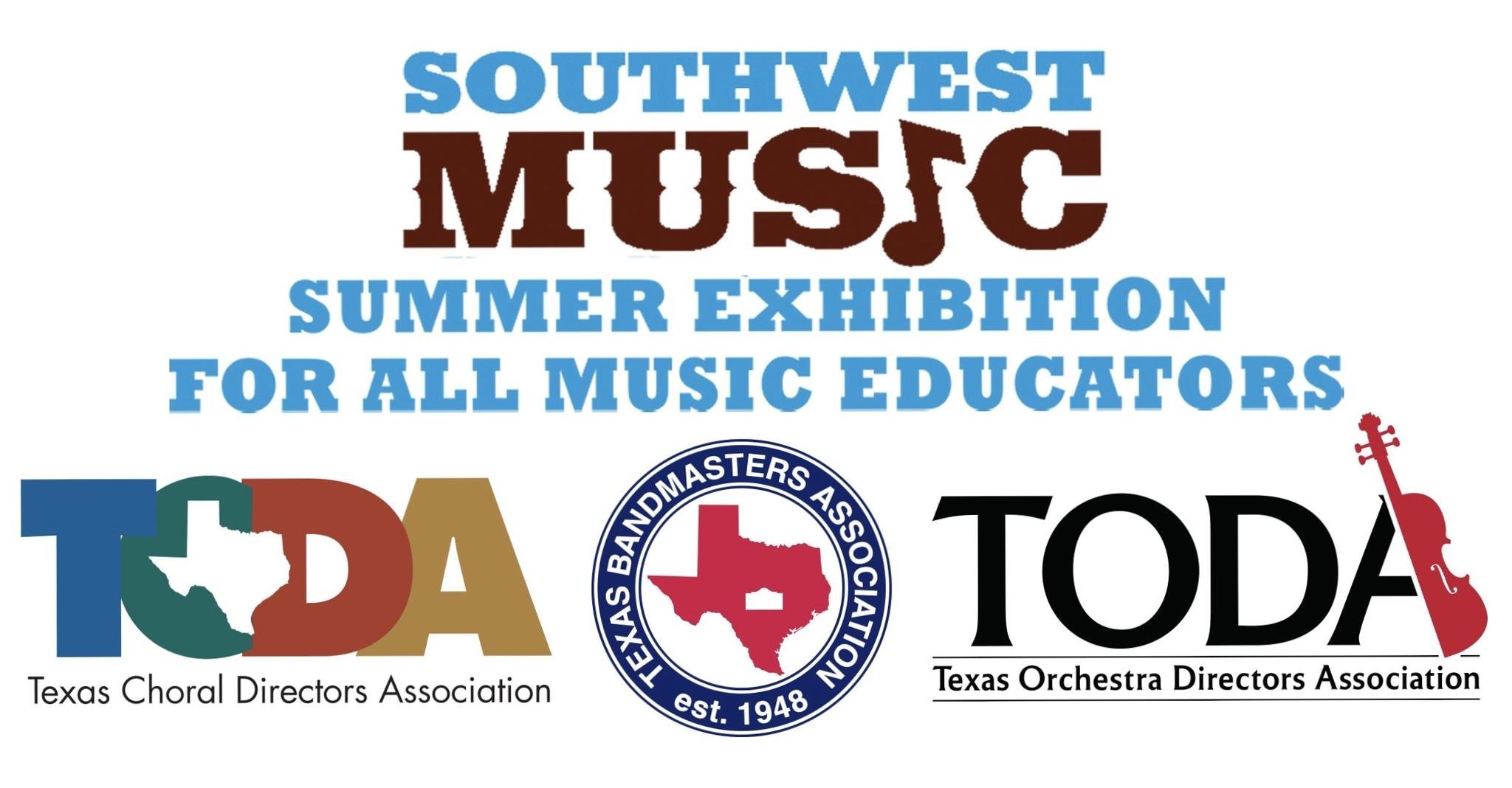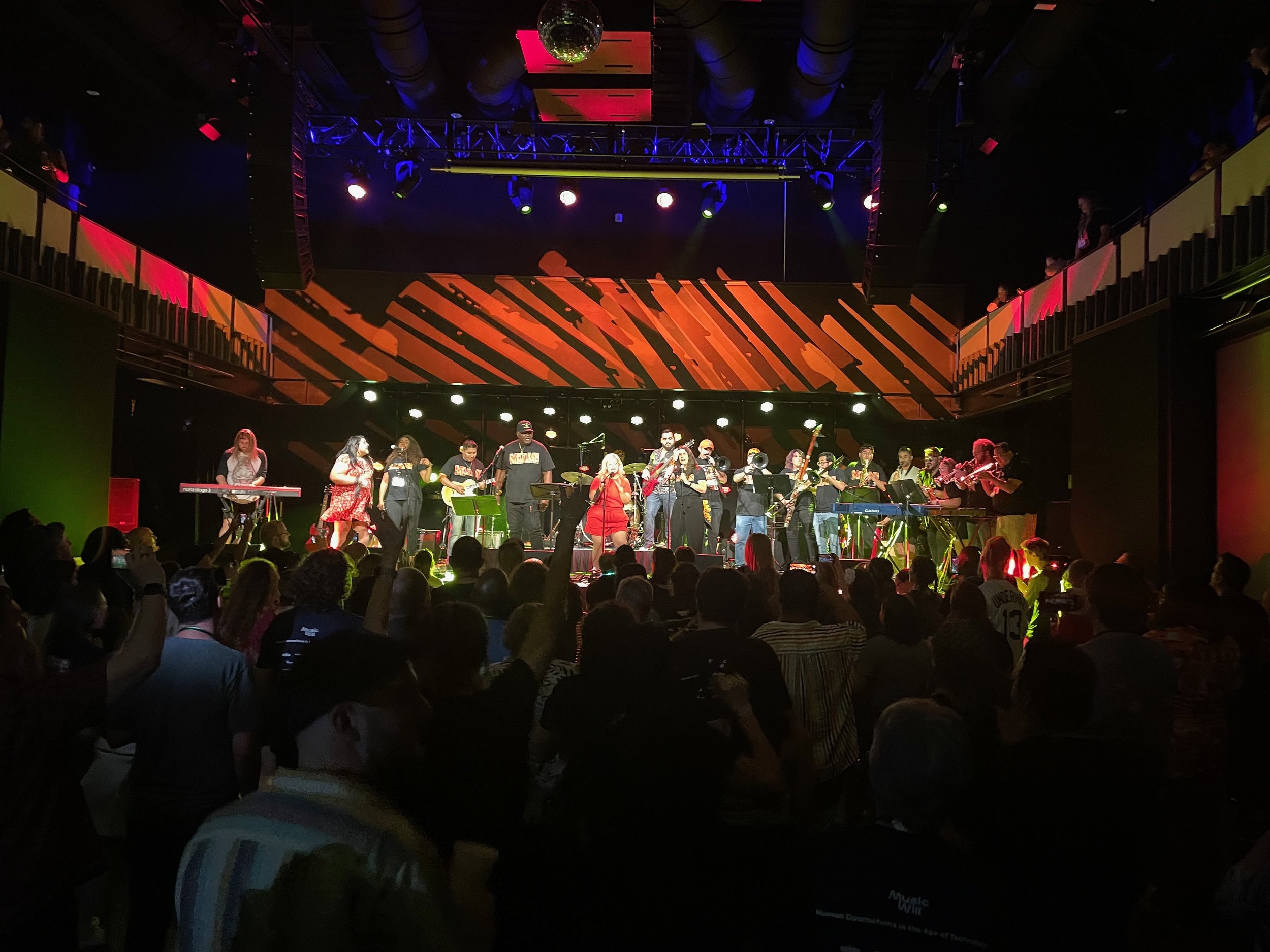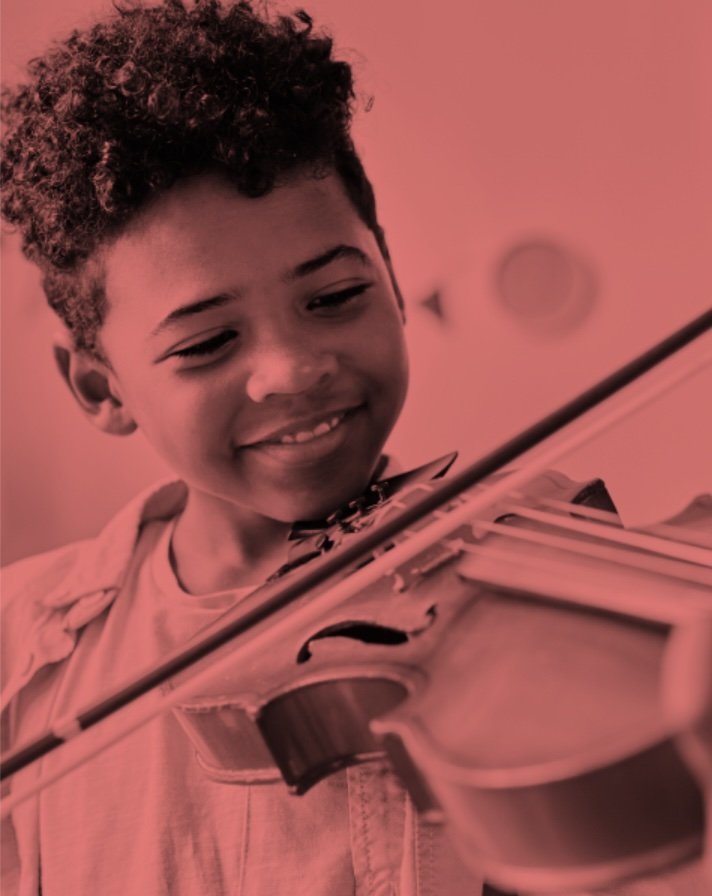
Massachusetts Music Tech Day
Mark your calendars!!!! If you live within a few hours drive from Worcester, MA, then you won’t want to miss our next big event: Massachusetts Music Tech Day 2024, in collaboration with the Berklee College of Music Music Education Department, the Worcester Public Schools, and MMEA -the Massachusetts Music Education Association. This FREE in-person event is designed specifically for K-12 music educators and administrators like you. It’s a day packed with innovative sessions, hands-on workshops, and the chance to learn from five experienced clinicians who are leaders in music education. The date is Saturday, October 5th 2024 from 8:00am - 3:15pm at North High School - 140 Harrington Way in Worcester, MA 01604.

The End of Finale
This past week, as I am quite certain you’ve heard, MakeMusic announced that it would cease all development and sales of their landmark music engraving program, Finale - dealing a heartbreaking blow to the many loyal and long-time composers and musicians who have been writing music with this software for the past 35 years. The reaction from the music community was immediate and fierce, and that shouldn’t have been a surprise. To many, Finale is/was the tool that they use(d) every single day to write music. It is/was the industry standard for publishers too. After getting lots of passionate feedback from their community, the company has identified a clearer path for their users to switch to one of their competitors - Dorico - and how they can continue to use Finale for at least the next few years. I’ve seen some of their/my competitors take this opportunity to try to get Finale users to switch to their product, but I think that is in really poor taste. The last thing Finale users want to do is switch - no matter how good the other products are. I thought that I would share some of my thoughts on the end of Finale, as it has been the one music technology product that has followed me throughout my career.

Introducing the Graphic Score Tool in MusicFirst Elementary
MusicFirst Elementary - the incredible K-5 spiral curriculum powered by Charanga and available exclusively from MusicFirst, just dropped an incredibly cool creativity tool just in time for the start of the school year. Introducing the Graphic Score Tool. As we know, one of the most important aspects of being a elementary music educator is fostering creativity in our students by engaging their minds with innovative and FUN tools that eliminate any barriers to exploring their inner creative voice. With the launch of the Graphic Score Tool, we believe we have created something that makes music composition and listening activities accessible, intuitive, and fun for your students - and is INCLUDED with every subscription of MusicFirst Elementary! The Graphic Score Tool also comes with 10 fantastic mini project ideas - perfect for any educator to dive right in and start using this new tool with your students. This new tool is designed to empower both teachers and students to explore the world of music through visual and auditory creativity. Our Elementary Music Consultant, Amy M. Burns, has created this short overview video that illustrates exactly why we are so excited about this new tool.

AI Goes On Trial This Week
The upcoming trial between Thomson Reuters and Ross Intelligence (now Paxton Legal AI) is about to shake things up in the AI and copyright world, and it’s something that music teachers (and all teachers) using technology in their classrooms might want to keep an eye on. The trial is set to start on August 23rd, and while you might not see it in the news headlines, the outcome of the trial will likely set a huge precedent with regard to perhaps THE most important question when it comes to AI and its use of data: Can you use copyrighted material to train an AI system without paying for it and still call it a fair use?

Sell & Distribute Your Concert Recordings Online with TuneCore
Back in 2007 when I was still teaching music in the public schools, I held a Battle of the Bands as a fundraiser to help school music programs in New Orleans after Hurricane Katrina. In addition to the ticket sales and some donations that we raised, my students thought it would be a cool idea to record the concert and sell it on iTunes. I told them that it wasn’t possible due to licensing difficulties, but in truth, I had no idea how I would get the recording to be posted on iTunes. One of my students came to me with a tip: check out TuneCore. At the time they were a startup from Brooklyn, NY and they did exactly what I was looking for - they get your recordings distributed to online music platforms. Nearly 20 years later, they are still doing just that, and I think that as a music teachers, we invest countless hours nurturing our students' talents and preparing them for performances - but once the performance is over, it vanishes into history. By recording them and using a service like TuneCore, you can easily share your school's music performances on popular platforms like Spotify, Apple Music, and Amazon Music. There are other similar platforms that do exactly the same thing (DistroKid is very popular) - but I’m focusing on TuneCore because I’ve actually used it.

Resource: Make Pop Music
I recently stumbled upon a fantastic YouTube Channel and website called Make Pop Music. It is a perfect resource for any music teacher that is looking to incorporate songwriting into a popular music curriculum. The site and channel were founded by Austin Hull. Originally a metal producer, Austin’s love for pop music led him to create a Facebook group in 2014, which has since grown into Make Pop Music with over 30,000 members and 200,000 YouTube subscribers. The platform offers resources like sample packs, courses, and tutorials, filling a gap in education for underground pop. While there is plenty of stuff to buy from his website, I think his YouTube videos are REALLY good and will inspire students - especially as he focuses on how to make songs that sound like many of their favorite artists. For example, here is a 40-minute video that shows how to write a song in the style of Ariana Grande:

Copyright & AI: US Copyright Office Releases Initial Findings
The U.S. Copyright Office recently released a report yesterday that directly addresses the intersection of AI and copyright law - something that up until now has been very confusing. As music educators, I believe that it is REALLY important to understand the what, why and how of copyright law when it comes to the end products that AI tools like Udio, Suno, ChatGPT, Claude, Moises and more. Who owns what? Do your students own the copyright on anything they create with these tools? What if the tool is free? What if you paid for it? If they don’t own the copyright - who does? Are the creators that made the content that these tools have been trained on entitled to any compensation? If not, why? I really think that as AI continues to weave its way into the fabric of music creation and learning, understanding the legal landscape is becoming more and more important.

Lesson Plan: Around the World in 80 Podcasts
As I site here in the United Lounge waiting for my flight to London on behalf of MusicFirst, I am reminded of world travel - especially since I have trips coming up to Thailand and Vietnam this Fall. I love experiencing different cultures, and of course their music, and I was reminded of a lesson plan that I wrote as a part of the Podcasting Across the Curriculum publication that I wrote titled Around the World in 80 Podcasts. The lesson and project are perfect for students Grades 4 and up, and can easily be taught in any subject area. What follows is the lesson plan and project overview. I hope that you can use it with your students in the new school year. Enjoy!

Introducing the MusicFirst Classroom 3.0!
When we first launched the MusicFirst Classroom in August of 2013, we knew that as time went on and more and more teachers and students started using our platform on a daily basis, we would need to continue developing and upgrading the underlying technology and feature set to not only provide a better user experience for our customers, but also to keep up with all of the advances to web-based platforms and technology to ensure that we were always on the cutting edge. Over the past 18 months, our development team at Avatar New York, working very closely with Brad Smith, our Director of Technology, as well as our entire support team including Jaye Mateyko, Tori Stroud and James Rock, AND our Director of Content, Marjorie LoPresti, has been working on the biggest upgrade we’ve ever done to the MusicFirst Classroom. Over the past week, our site has been intermittently down so that we could bring this upgrade to the thousands of implementations that we have in schools around the world. It was a VERY big project - rewriting every line of code - so the migration of data and the actual upgrade took some time - but I think you will LOVE the new version. I am SO excited to bring it to our customers. Starting today, Monday, July 29th, 2024 you will see this new version of the MusicFirst Classroom as soon as you login. What follows is a complete list of all of the new features that was compiled by Tori Stroud - one of our amazing support managers.

TBA/SMSE 2024 Recap
I’ve been in San Antonio, Texas this week representing MusicFirst at the 2024 TBA/SMSE Convention, along with my colleagues Dr. Keith Dye and Mike Olander. I have been coming to San Antonio twice a year for MANY years. It’s one of my favorite cities and between the TMEA/TI:ME Conference in February (one of the largest music education shows there is) and this event, we get plenty of quality interactions with current and prospective customers, as well as time to meet with many of our software partners. I was asked to present 3 sessions for the Texas Bandmasters Convention on AI and it’s potential impact on music education for both teachers AND students - a first for me. The session that I presented to teachers on Thursday was one that I have done many times in the past - often as a Keynote Address. It is titled Music Education at the Crossroads: The Impact of AI & Technology. For the students, I was asked by my good friend Frank Troyka to speak with the many students who attended the Student Day portion of the convention on Friday. That talk was titled Can AI Help Make You A Better Musician? Let’s Find Out!. It has been a LONG time since I’ve taught younger students, and I think they really enjoyed learning about the many tools that use AI - including the MusicFirst Classroom, PracticeFirst, Sight Reading Factory and more.

AI Tool: Moises
I realized this morning that I haven’t written anything about one of my all-time favorite AI-powered music tools - Moises. I cannot speak highly enough about this incredible suite of AI-tools for music production. They are the PERFECT example of how AI can be used to help musicians with all aspects of music production, and some of their tools also have incredible value for teaching music. Moises is an audio processing tool that utilizes advanced AI algorithms to analyze and manipulate audio files. The software's standout feature is its ability to separate tracks within a song into individual stems, isolating vocals, drums, bass, and other instruments. This powerful functionality allows students and teachers to focus on specific elements of a composition, making it easier to study arrangement, instrumentation, and performance techniques. Here’s a quick promo video to give you an idea of the look and feel:

New Music Technology Resources in Focus On Sound
Focus On Sound is an incredible resource for music educators and their students, and it is included with every seat of the MusicFirst Classroom. It is essentially an interactive encyclopedia covering MANY aspects of music, including musical instruments, world music, types of ensembles, styles of music, music theory, as well as a large dictionary of musical terminology. Teachers LOVE Focus On Sound because it includes hundreds of lesson plans that all culminate with an assessment for students - PERFECT for sub plans :). This summer, we have had the pleasure of having a fantastic intern on our staff, Elaria Ipecki from Montclair State University. She is a music technology expert and has been helping to create LOTS of new content - specifically in the Music Technology and Music Tech Hardware sections of the software. It is the PERFECT resource for any music teacher who covers music technology as a part of their curriculum. Here’s a closer look:

Meet JEN - An Ethical Generative AI Music Platform
Another Generative AI music platform? Yes. Meet JEN. Like the many other platforms out there, JEN can create music based on text prompts however they put copyright compliance, transparency and compensation of artists front and center. According to their website, “every training input and generative output is vetted for audio recognition and copyright identification utilizing a database of 150M tracks. Jen creates a cryptographic hash for each track, ensuring the integrity and timestamp of the track’s creations.” It is great to see this push for a more ethical approach to generating music with AI. JEN has posted a training doctrine on their website that looks like this:

Resource: K-12 Modern Band with Jasmine
One of my favorite parts of attending any conference is meeting new people and learning new things. When you can do both at the same time, it’s pretty special. At the Modern Band Summit this week, I met a fabulous music educator named Jasmine Todd Faulkner who attended one of my sessions. She came up to me after I was finished presenting to share an incredible resource with me that she has created on YouTube. Her channel is called K-12 Modern Band with Jasmine, and it is fantastic. Jasmine is the music teacher at Polaris Expeditionary Learning School in Fort Collins, Colorado where she teaches K-12 modern band, songwriting and recording studio. She creates really cool play-along videos of TONS of pop songs. Her goal is to make a complete K-12 modern band starter curriculum for public schools, and her videos are terrific. Here are a few to give you an idea of what she does:

Modern Band Summit Recap
I just finished up three incredible days at the 2024 Modern Band Summit on the campus of Colorado State University in Fort Collins, Colorado. It was my first time attending this conference and all I can say is WOW. I have never attended a music education conference like this one. SO much positive energy, learning, affirmation, support and downright FUN. The Music Will organization really knows how to put together an event that combines high quality pedagogy and “jump right in” performance opportunities. From the moment I walked into the Lory Student Center - the hub of all the activities - all I could hear was music being played - everything from Ceelo Greene to the B52s. Impromptu bands formed by the participants getting ready to perform the next night on stage with professional lighting, sound system, and hundreds of screaming fans. Such a great event! Hats off to David Wish, Bryan Powell, Maddy Posner, and ALL of the Music Will staff.

OGenPlus Plug & Play Course
Recently, the amazing content team at MusicFirst, in conjunction with the inimitable Marcel Pusey from OGenPlus, published an amazing new course in the MusicFirst Classroom Content Library called OGenPlus Plug & Play. This course is designed to help teachers and their students explore OGenPlus - the newly revamped version of O-Generator - one of my favorite composition tools. The course includes 20 lesson plans that help students learn both HOW to use the software while learning how to compose in various styles of music. There are also over 50 projects for students to explore, including an overarching lesson plan for each category of project as well as direct links from the lesson plan to OGenPlus - making it the PERFECT solution for teachers who are looking for an affordable, accessible and EASY way to get your students composing. OGenPlus is included with every MusicFirst Classroom seat purchase as a part of our Creativity Bundle. Below is an example of a lesson plan as well as a project. But first, a quick refresher on what OGenPlus can do from the one and only, Marcel Pusey!

Heading out to my first Modern Band Summit
This week I am thrilled to be heading out to Fort Collins, CO for my first Modern Band Summit, presented by Music Will, on behalf of MusicFirst. I will be presenting a session titled Modern Band & MusicFirst: Perfect Together on Wednesday, showing off our amazing new Modern Band Bundle in the MusicFirst Classroom, and I’ll be participating in the Tech Playground for two more sessions on Thursday. I am so excited to finally attend one of these events. MusicFirst is a proud sponsor and I look forward to meeting with other like-minded music educators and industry folks. I will be posting my session materials and a recap on Friday. Until then, I am also looking forward to some great early morning hikes, checking out some amazing craft breweries, and making some music! There is actually still time to register for the summit if you’re looking to make some last minute PD plans. I hope to see you there!

Summer Reading Recommendations 2024
For many teachers, summer is a time to relax and decompress from the stresses and challenges of the previous school year. For many, it is also a time to do some professional development and reading. While I’m not suggesting that you spend your entire summer reading music education books rather than the latest novels, or binging on podcasts and Netflix series, I do think that there are some amazing music education books that have come out in the past year or so that are definitely worth the time to read between podcasts, Netflix episodes and novels. Here are 4 that I have read recently and HIGHLY recommend to any music educator.

5 Reasons to Make MusicFirst Elementary Your New Curriculum
We launched MusicFirst Elementary less than a year ago with our partners from the UK, Charanga, and every day, more and more school districts are adopting the curriculum to engage with students and provide a high quality, standards-based spiral curriculum at an affordable price. As elementary music educators, we're constantly seeking innovative and effective tools to enrich our students' musical journey and we believe that MusicFirst Elementary is a standout option for K-5 music curriculum. Our elementary music consultant, Amy M Burns, has been creating amazing videos that show the product in action and explain both how it works, as well as how you can implement it in your school. As the 2024-25 school year approaches, and decisions on which resources to use are happening, here are the 5 main reasons why you should consider implementing MusicFirst Elementary in your classroom, complete with some of Amy’s best explainer videos.

Introducing the Habits of a Young String Musician COURSE in the MusicFirst Classroom
The MusicFirst content team has been hard at work over the last few months, bringing a brand new publication from GIA Publications into the MusicFirst Classroom - creating an exclusive COURSE for music teachers to use with their students alongside PracticeFirst - our revolutionary performance assessment program. This course includes all of the incredible instructional materials from the new Habits of a Successful Young String Musician book, and breaks it down by individual lesson plans and assignable tasks for every single exercise in the book. Combined with the unique functionality of the MusicFirst Classroom, where teachers can simply drag and drop these lessons and tasks into a class calendar, this exclusive offering from MusicFirst is a MUST HAVE for any string teacher at the elementary or middle school level. Here’s how it works.